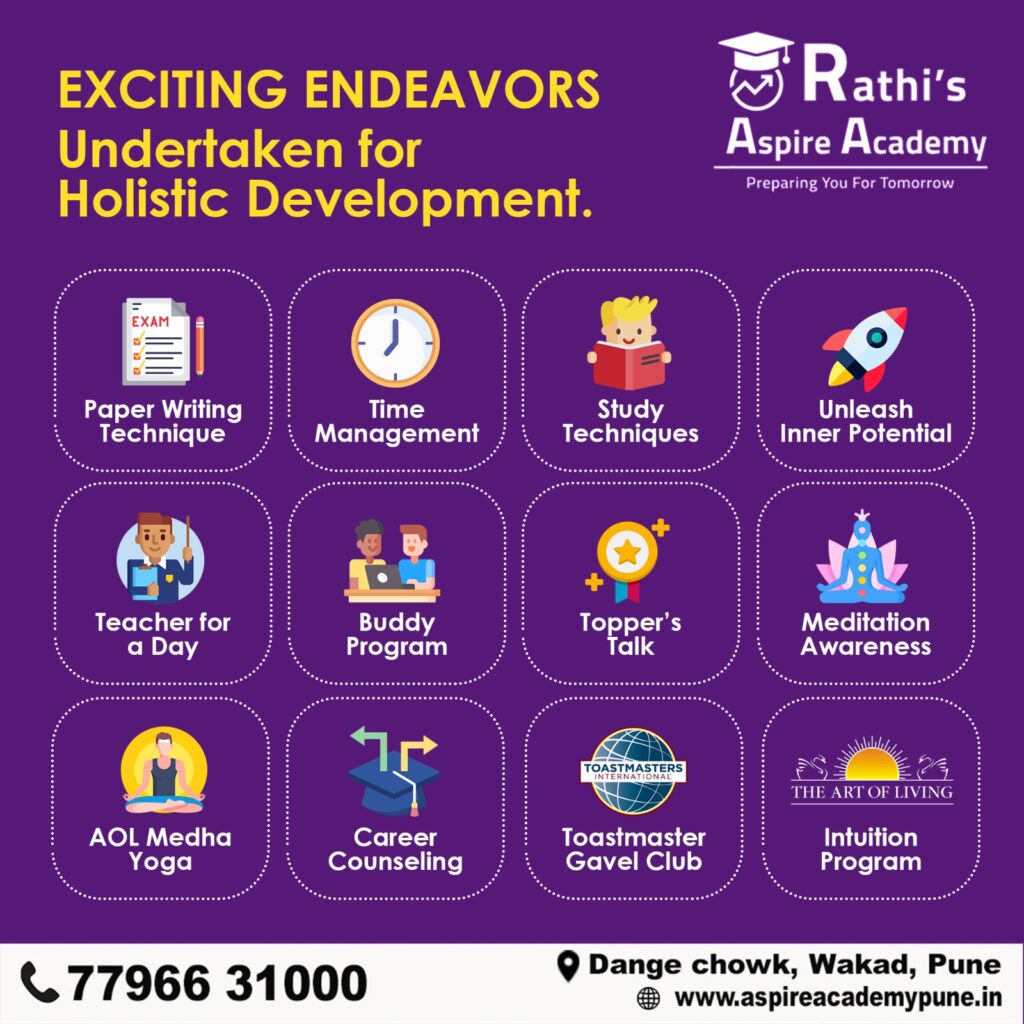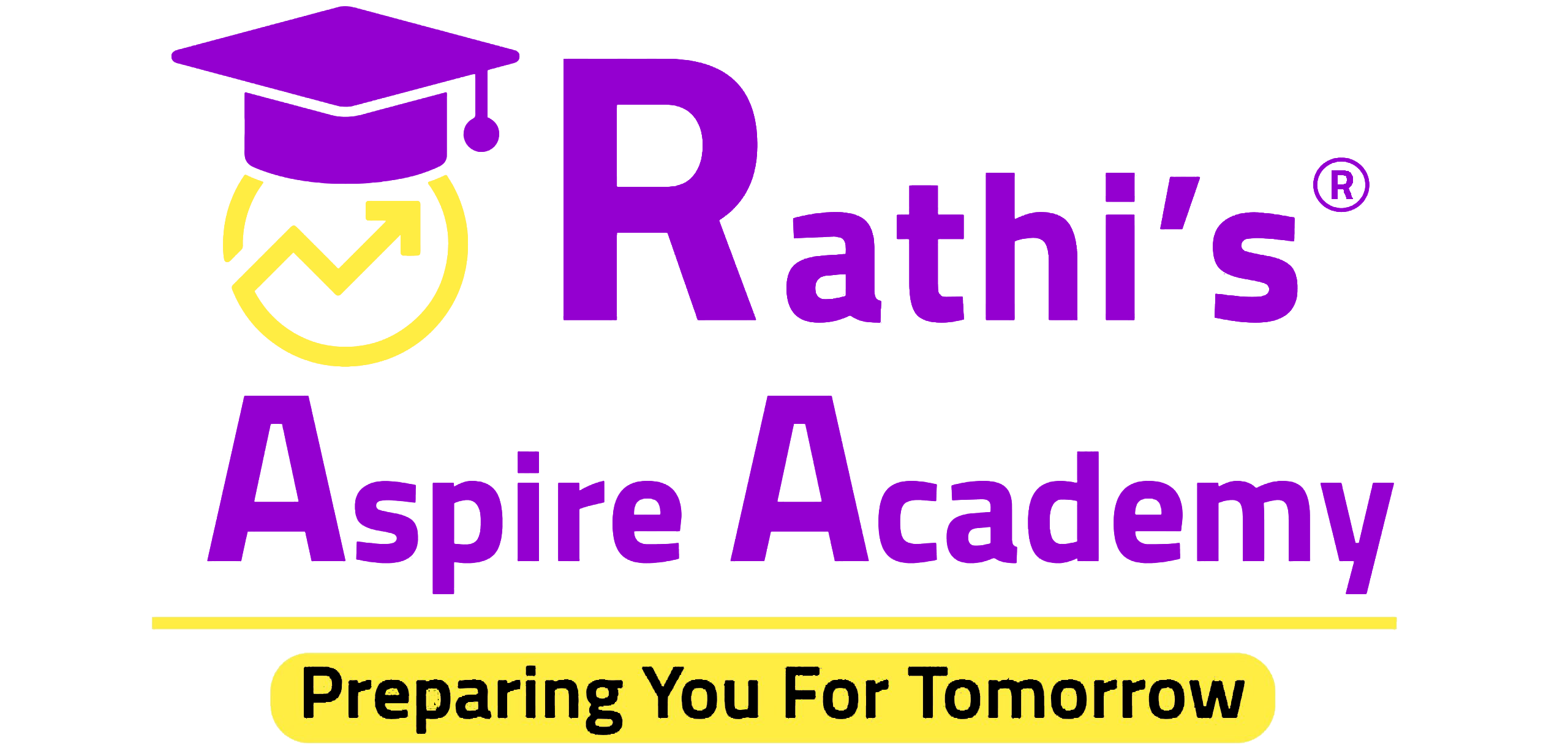Foundation Course: A Comprehensive Guide for Parents

In an era where academic excellence is both a goal and a necessity, the path to achieving it is fraught with complexities. The rise of specialized coaching classes and supplementary educational programs has added layers of options, each promising to be the key to unlocking a child’s potential. Amid this plethora of choices, parents find themselves searching for clarity, understanding, and confidence in their decisions.
At RAA, we don’t just acknowledge these challenges; we empathize with them. We recognize that parents are not merely selecting an educational pathway; they are sculpting the very foundation upon which their child’s future success will rest. In this comprehensive exploration, we embark on a profound journey that dissects the foundation course’s intricate nuances. Our purpose is not just to provide information but to empower parents with the knowledge, insights, and wisdom they need to navigate this intricate educational landscape effectively.
As parents ponder the merits of enrolling their children in foundation courses, the weight of this decision is palpable. But what is a Foundation Course? Generally, when students start learning 11th – 12th JEE or NEET concepts from an early stage, like in 8th or 9th standard, these courses are commonly called Foundation courses. Is learning 11th – 12th JEE, and NEET concepts during 8th – 10th grade the true foundation, or should we consider the CBSE/ICSE board-designed syllabus for 8th – 10th grade as the real foundation? This blog isn’t to challenge the prevailing perception, but we invite parents to ponder on this perspective.
The Complexity of Balancing Education and Extracurricular Activities
The modern educational landscape has evolved to be highly demanding, with an emphasis not only on academic achievements but also on well-rounded development through active participation in various extracurricular activities. Students are expected to excel in their studies, participate in sports, participate in inter-school competitions, and attend coaching classes to supplement their learning. While these diverse experiences can enrich a student’s life, they also present a significant challenge in terms of time management and balancing these commitments effectively.
One of the major challenges student faces is the overwhelming volume of commitments they have to juggle. On one hand, they are expected to maintain high academic standards, keeping up with complex subjects, assignments, and exams. On the other hand, the pressure to excel in sports, arts, or other extracurricular activities is equally intense. To navigate this intricate web of commitments, students often need excellent organizational skills, time management techniques, and a strong support system from parents, teachers, and mentors.
Succumbing to Societal Pressure of Foundation
The relentless pursuit of fulfilling societal expectations often leads to burnout, a state where students are physically and mentally exhausted from the constant pressure to excel. Burnout can significantly impact a student’s overall well-being, leading to increased stress, anxiety, and even depression. Such emotional turmoil not only affects their academic performance but also hampers their social interactions and personal development.
Moreover, the mounting pressure can erode the joy of learning, turning education into a stressful obligation rather than a fulfilling journey of exploration and growth. Students may lose their enthusiasm for subjects they once enjoyed, hindering their natural curiosity and creativity.
Let’s share a real case of Sarthak (for privacy purposes we’ve altered the real name), a bright 10th ICSE student who always excelled in academics. Encouraged by the prevailing trend of enrolling in foundation courses, his parents decided to follow suit. However, they soon observed a decline in Sarthak’s academic performance and he wasn’t doing great in the Foundation course either. Faced with this situation, they decided to discontinue the foundation course. This example illustrates the importance of careful consideration and understanding of a child’s unique learning needs before succumbing to societal pressures.
This doesn’t mean no one should do the Foundation course. The advantage lies in covering advanced topics typically taught in 11th and 12th grades during the 8th – 10th standard. Being ahead of the competition is always beneficial, but this applies to a child who is already doing fantastic in school academic, s/he is disciplined, self-motivated, has good grasping power, and manages time well by balancing school academics, extra curricular activities and foundation.
The Role of Academic Coaching
Coaching for School syllabus for a student who wants to perform better in school results is known as academic coaching. Simply it is seeking help from efficient private institutes that enrich learning and build confidence in students. Academic coaching serves as a vital component in a student’s educational journey, offering specialized support and guidance that can significantly enhance their learning experience.
One of the key aspects of academic coaching is the provision of structured study plans. These plans are meticulously designed to cover the entire syllabus, breaking down complex topics into manageable segments. On top of that, regular tests and assignments are another crucial feature of academic coaching programs. These assessments serve multiple purposes. Firstly, they help gauge the students’ comprehension of the material taught, identifying areas where they might need additional support. Secondly, regular testing instils a sense of discipline and responsibility in students, encouraging them to stay consistent with their studies. It also prepares them for the exam environment, reducing anxiety and building confidence in their abilities.
Out of the several cases we have seen at RAA, we would like to share 2 cases – Hinal Gaikwad joined RAA for 10 CBSE academic coaching. She secured 88% in the 10th board, a jump of 27% from her 61% in the 9th CBSE. Similarly, Shubhankar Pal secured 83.5% in the 10th board, a jump of 26.39% from his 57.11% in the 9th ICSE. This has given them a sense of achievement and boosted their confidence to face any competitive exams. They are preparing for IIT-JEE and NEET respectively at RAA.
Early Preparation vs. Waning Enthusiasm
The decision regarding the timing of exam preparation poses a significant dilemma for both parents and students. Early preparation undoubtedly offers a head start, allowing students to cover a broader range of topics and master complex concepts gradually. However, it is crucial to strike a balance between early initiation and the risk of waning enthusiasm over prolonged periods of preparation.
In a specific case at one of the reputed CBSE schools in Wakad, Pune, foundation classes were introduced after regular school hours. During the first year in 8th standard, a significant number of students enrolled in these classes. However, by the following year in 9th standard, approximately 70% of the students who had initially enrolled discontinued the course.
Though early preparation provides an edge, excessively long study periods can inadvertently lead to monotony and a loss of interest. Learning might become a repetitive, uninspiring task, potentially diminishing the student’s intrinsic motivation to excel. Conversations with successful candidates who cracked JEE and NEET have highlighted the effectiveness of focused and intensive two-year preparations. These concentrated efforts often result in remarkable outcomes, as students remain motivated and driven throughout the process.
The Significance of Parent-Child Dialogue
The crux of the matter lies in open, honest communication between parents and students. Parents must invest time in understanding their child’s aspirations, strengths, and limitations. It is often seen that parents enroll their wards in courses due to societal pressure and students hesitate to tell parents about his/her inability to score well in the course. Hence engaging in meaningful conversations can illuminate the path forward. Encourage your child to voice their feelings and apprehensions. Assess their interest in the subjects they plan to delve into intensively. A foundation course should not be a source of stress; rather, it should augment their educational journey.
Parents need to recognize that enrolling a child in a foundation course does not guarantee a seat in prestigious institutions like IIT or NIT. Several students cracked competitive exams with 2 years of focused preparation whereas there are students who couldn’t crack it even after 5 years of preparation. Just like how some aspirants clear the IAS exam on their first attempt while others may take several years, every student’s journey is unique.
Indeed, every student is unique too, and what works wonders for one might not be the best fit for another. Engage in an ongoing dialogue with your child, fostering an environment where their growth is nurtured organically. RAA is not just an academy; we are your partners in this educational odyssey. With our expertise and your parental guidance, we can ensure that your child’s educational journey is not just enriching but also tailored to their individual needs, setting the stage for a future marked by success and fulfilment.
Guided Decision Making
Thoughtful consideration is paramount to a child’s overall growth and academic success. At RAA, we offer both Foundation and School academic courses. We champion a balanced unbiased approach and offer a suitable course post discussing with students and parents, as every student is unique. Even though you didn’t do the foundation course in 8th – 10th std., at RAA we cover it in 11th – 12thJEE, and NEET classes, providing an opportunity for learning when it is needed. The courses provided by RAA, play a multifaceted role in shaping a student’s personal development and success in academic and competitive exams.

A Sum-Up
Finally, the decision to enroll your child in a foundation course should be based on the child’s capabilities and time management skills. If students are adept at managing time and possess a bright and self-disciplined attitude, they can confidently handle both school academics and foundation studies. In contrast, some student’s confidence and skills may get bolstered by this dual commitment and confidence, once lost, is challenging to regain.
Encourage your child to explore their passions and interests alongside their academic endeavours. Striking an equilibrium between academics, extracurricular activities, and a healthy lifestyle is paramount for holistic development.
Join us as we unravel the layers of Foundation and School academic courses, exploring their impact on the educational canvas and, ultimately, on the future of our aspiring students.



